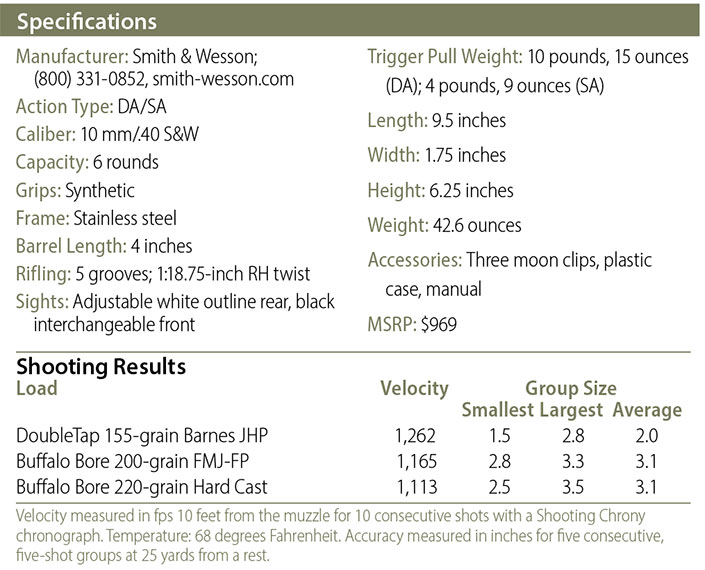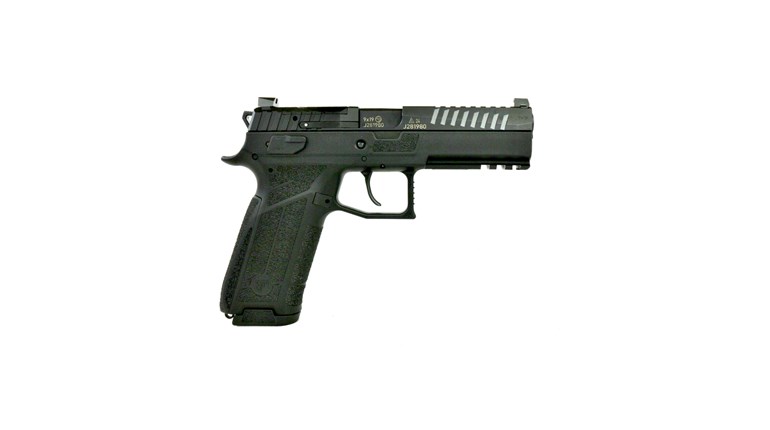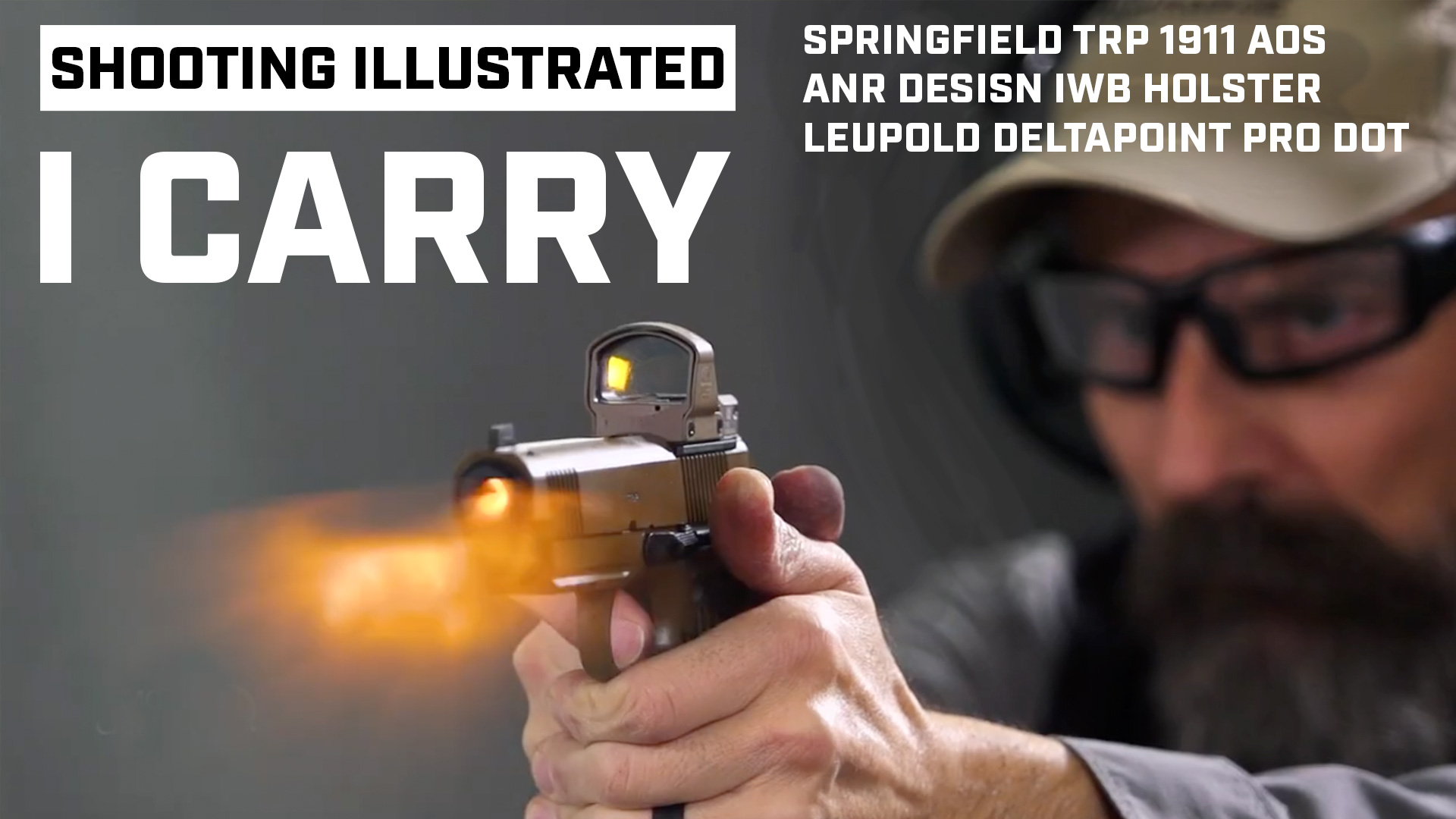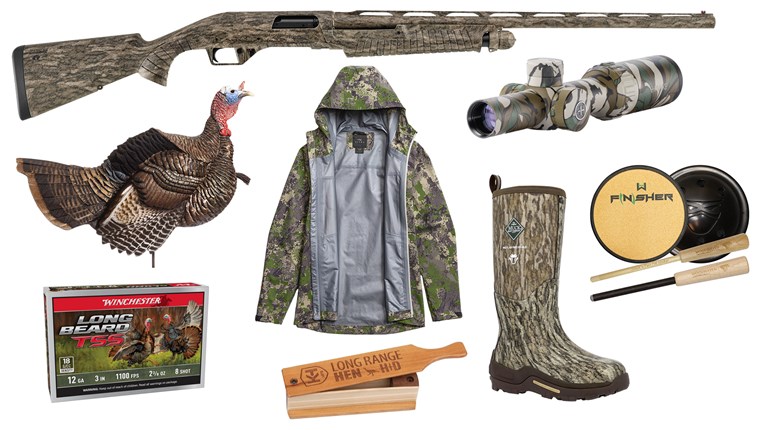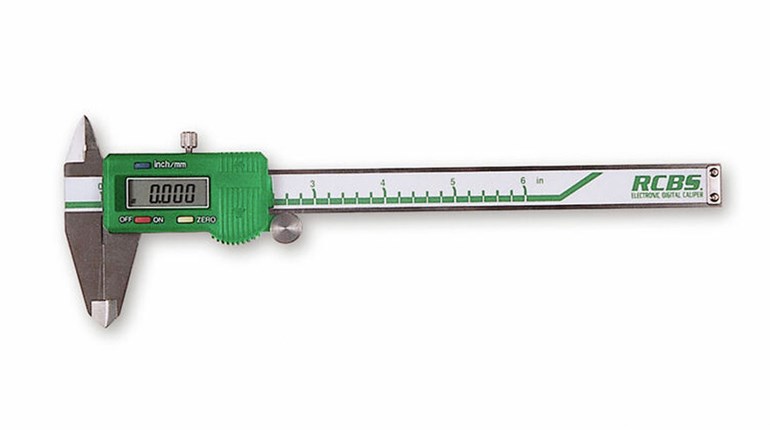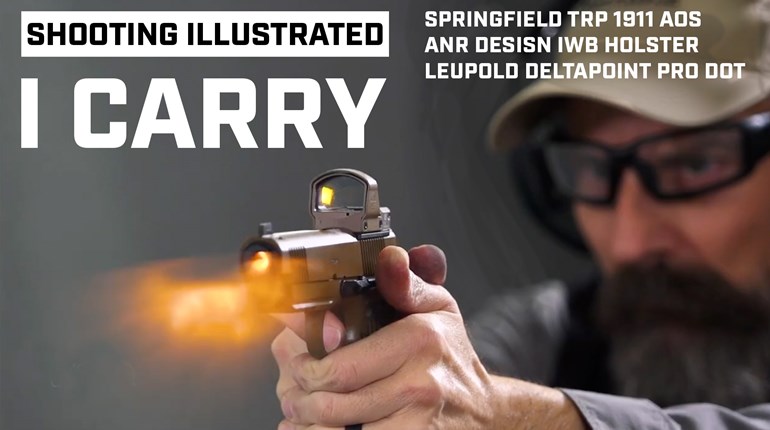
Big-bore revolvers and I have had a passionate love affair my whole life. However, their recoil can be demanding for both beginning shooters and more-mature shooters alike. Luckily, Smith & Wesson’s Model 610 revolver makes it a little easier for everyone to enjoy a larger-caliber revolver.
The Model 610 is a conventional-looking Smith & Wesson N-frame revolver chambered in 10 mm. It features a stainless steel frame and 4-inch, stainless barrel with full-length underlug. A wide, smooth combat trigger facilitates double-action shooting and a wide, checkered hammer allows more-precise single-action fire. Continuing the Smith & Wesson big-bore heritage, the 610 holds six rounds of either 10 mm or .40 S&W. The hefty revolver’s weight of 42.6 ounces does help dampen recoil, and given its ability to launch 200-plus-grain bullets near 1,200 fps, the gun is pushing into 41 Mag. performance territory.

Sights are also traditional with the front sight a plain, black blade and the rear being adjustable with a white outline around the notch. The front-sight blade is interchangeable, so if you want a colorful or fluorescent, low-light eye-catcher up front, remove and replace. As issued, the 610 sights present a good, classic outdoorsman sight picture with adequate light visible on both sides of the front blade. For personal defense at night or in low light, you’ll want a flashlight.
Smith describes the grips simply as “synthetic.” While they were comfortable to hold, they were slightly oversize for me and made double-action shooting difficult. Large-frame Smith & Wessons that feature grips covering the backstrap increase the distance to the trigger, which means I don’t get enough finger on the trigger for full control of the 11-pound double-action pull. The result is I have to rotate my firing-hand grip so I’m out of line with the bore axis. Neither condition is conducive to good shooting with a revolver that generates substantial recoil. Fortunately, the situation is easily corrected with a smaller, replacement grip. Once that is accomplished, I’d re-evaluate to see if I wanted an action job. Accuracy testing was accomplished shooting the 610 single-action, and it was a pleasurable experience.

The basic procedure for shooting rimless cartridges (like the 10 mm and .40 S&W) in double-action revolvers is to use full moon clips, each pre-loaded with six rounds. There are some serious considerations before you choose to go rimless. On the good side, moon clips offer a fast reload for a double-action revolver, faster even than the speedloaders that insert rimmed cartridges into the chamber before dropping to the ground when the cylinder is closed. The bad news is that if there is a lull in the action, you can’t “top off” (kind of a tactical reload) and just replace the fired cases. All six rounds are held together in that moon clip; it’s an all-or-nothing deal. In addition, the six-round clips I’ve handled are rather fragile. Any bending of the clip’s flat shape means all the rounds may not insert fully into the cylinder, which prevents you from closing the cylinder. Carrying those loaded moon clips around presents opportunities for damage, in addition to being rather difficult to conceal. The good news is that the 610 will allow you to load and shoot single rounds of 10 mm without the use of the moon clip, but absent the clip, you’ll need to carry some sort of extractor rod to remove each fired case from every chamber. The above discussion on flexibility of use pertains only to the 10 mm; the shorter .40 S&W rounds must be used in a moon clip.

One other advantage of shooting semi-automatic cartridges in a revolver rather than a semi-automatic pistol is the minimizing of potential feeding problems. If you’ve ever used a revolver speedloader with wadcutter bullets or semi-wadcutters featuring a large front driving band, you’ve occasionally experienced difficulty starting all six rounds simultaneously into the six chambers. A little “jiggling” usually gets it done quickly. In a semi-automatic pistol, every round has to make the trip from magazine to chamber, and the process is not activated with the help of some gentle jiggling. It’s a violent event with the slide slamming rearward and then forward. While most of today’s semi-automatics are highly reliable, you may or may not be able to change bullet shapes and weights without compromising that reliability. Not so in a revolver.
Smith & Wesson has been making solid revolvers for outdoorsmen for more than a century and a half. Its Model 610 not only fits nicely into that historic profile, it uses a modern cartridge designed specifically for defeating predators. With the right loads, the 10 mm will work on predators substantially larger than those envisioned in its initial design specification. The big revolver may not be ideal for concealed carry, but what guns generating this level of power will let you comfortably carry concealed and not be intimidated by the recoil?
